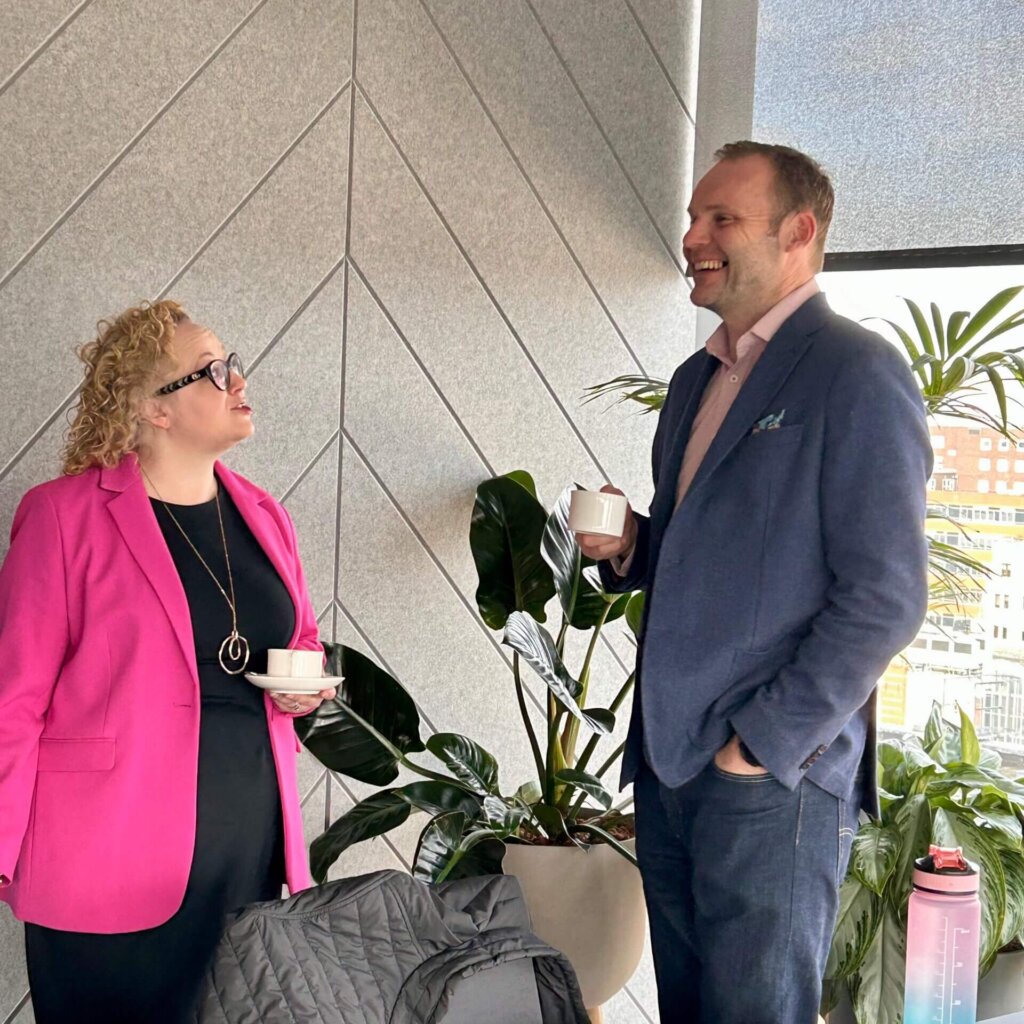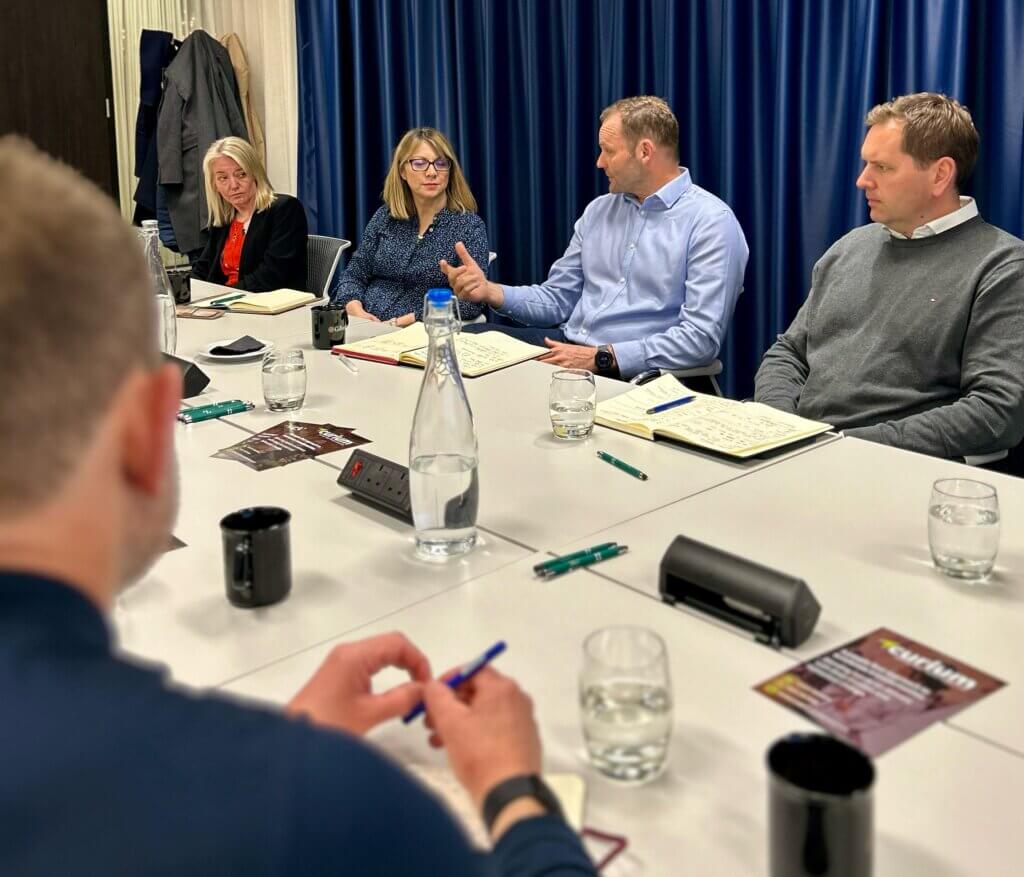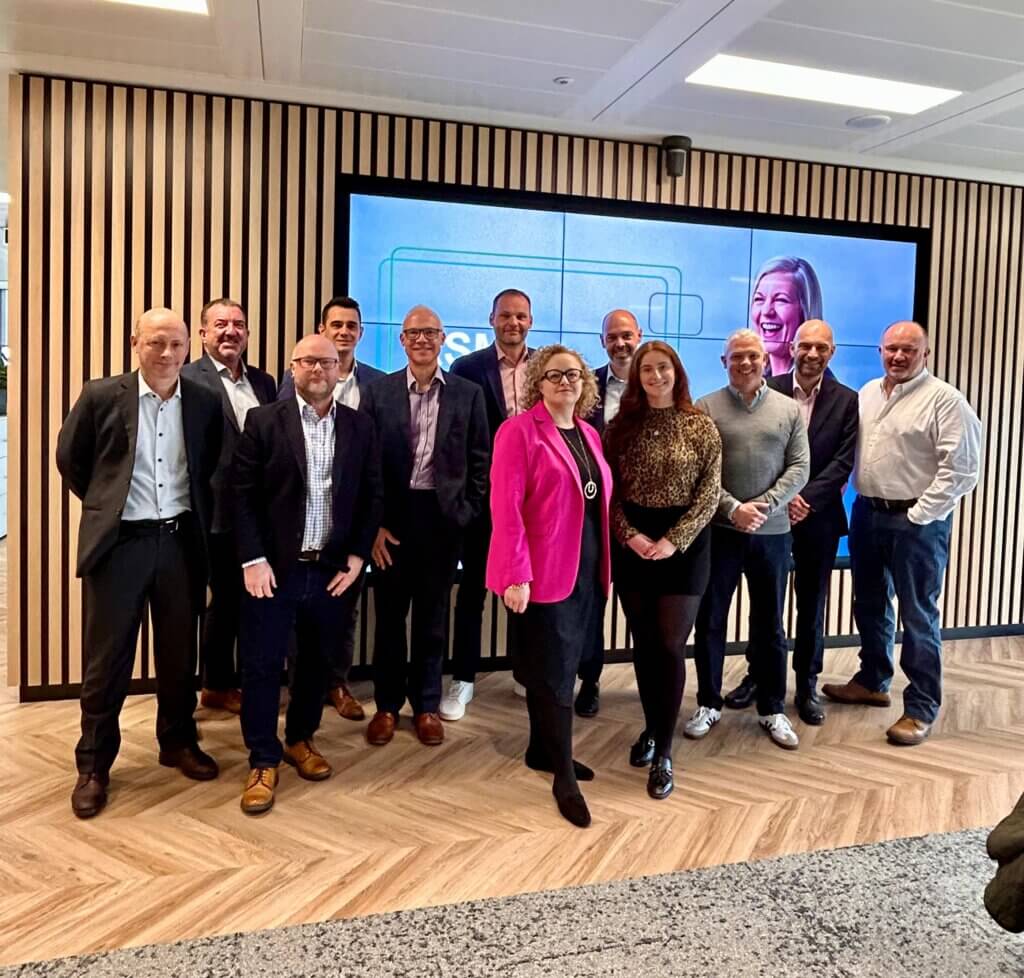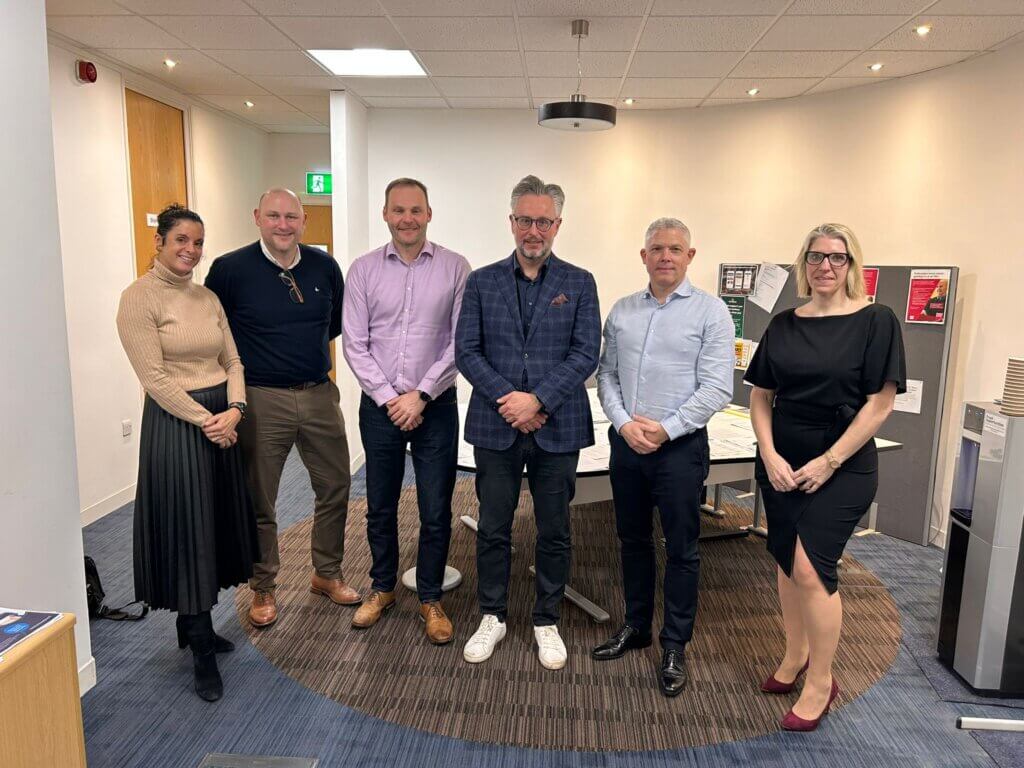As consultants, we thrive on providing answers to our clients’ problems. But it’s also our role to ask the right questions too. We recognise that, in a world where change feels like it’s running at breakneck speed, finding time to think deeply can feel like a luxury people can’t afford.
We also know creating spaces for conversations, igniting curiosity, and listening to different perspectives can be incredibly valuable and insightful. So when embarking on The Future of Work roundtables in partnership with TheBusinessDesk.com, we had high expectations. The good news is we weren’t disappointed – but we were often surprised by the conversations.
It was not a surprise that business leaders in different sectors are wrestling with lots of the same issues, or that the role of technology is a common board topic. But we were pleasantly surprised that people are still at the heart of almost all business discussions, driving choices and shaping outcomes. In a future which is often hyped to belong to the machines, our conversations demonstrated that people, culture and strong leadership are still seen as key and at the heart of business.
There is no doubt the Future of Work has many challenges, things to consider and plenty of unknowns. But the feedback from our business leaders shows that talking about the challenges and sharing ideas, the future seems in pretty good shape!
Enjoy reading.
– Tracy Westall, Non- Executive Curium Board Member











